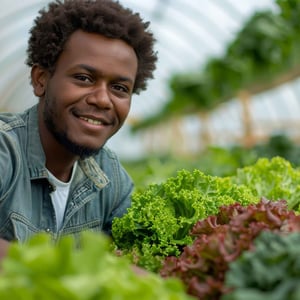
GLOBALG.A.P. CERTIFICATION
WHY GLOBALG.A.P. MATTERS: ENHANCING TRUST IN AGRICULTURE
GLOBALG.A.P. (Good Agricultural Practices) is an internationally recognized certification system that sets voluntary standards for safe and sustainable agriculture. Covering products like fruits, vegetables, livestock, and aquaculture, it ensures high-quality farming practices focused on food safety, environmental protection, worker health, and animal welfare.
Originally developed in the 1990s as EUREPGAP by European retailers and producers, GLOBALG.A.P. now spans over 135 countries. The certification involves thorough audits and annual renewals, helping farmers access global markets and continuously improve their practices.
GLOBALG.A.P. builds trust between farmers and consumers, promoting transparency and responsibility in the agricultural supply chain.
SQF AUDITS AND SQF CERTIFICATION
ASI can assist your company in achieving SQF certification.
WHAT IS GLOBALG.A.P. CERTIFICATION?
GLOBALG.A.P. (Good Agricultural Practices) is an internationally recognized set of farm standards dedicated to Good Agricultural Practices (G.A.P.). It is primarily designed to reassure consumers about how food is produced on the farm by minimizing the detrimental environmental impacts of farming operations, reducing the use of chemical inputs, and ensuring a responsible approach to worker health and safety as well as animal welfare

THE ASI DIFFERENCE
ASI distinguishes itself through several key factors. Its extensive experience and deep knowledge in certification areas, including GLOBALG.A.P., provide precise and reliable guidance tailored to industry needs.
ASI's comprehensive range of services—from initial consulting and gap analysis to training and certification audits—ensures that every aspect of the compliance process is thoroughly addressed.
Additionally, ASI is committed to ongoing support, offering continuous assistance to help companies maintain compliance and adapt to evolving standards. Their ability to combine a global perspective with local expertise further enhances their value, providing relevant and practical solutions that cater to both regional and industry-specific requirements.

ASI: SQF CERTIFICATION SERVICES
ASI Food Safety can support in preparation for SQF certification in several ways:

Partner with ASI for peace of mind.
GLOBALG.A.P. certification is the gold standard recognized worldwide for agricultural practices and product safety. Partnering with ASI, a trusted and accredited certification body, makes achieving GLOBALG.A.P. compliance smooth and efficient.
THE SQF PROCESSS
The process of obtaining Safe Quality Food (SQF) certification typically involves several key steps:
Download, your FOOD SAFETY CODE below, and understand SQF requirements
PREPARING FOR GLOBALG.A.P AUDIT:
Preparing for GLOBALG.A.P. certification involves several steps to ensure compliance with the standards and a smooth certification process. Here is a detailed guide to help you prepare:
1. Understand the Standards:
- Obtain the Standards: Download the GLOBALG.A.P. standards and guidelines from the official website. Make sure you get the correct version relevant to your products (e.g., crops, livestock, aquaculture).
- Familiarize Yourself: Study the requirements and protocols in detail. Understand what each standard entails and how it applies to your farming operations.
2. Conduct a Self-Assessment:
- Gap Analysis: Compare your current practices against the GLOBALG.A.P. standards. Identify any gaps or areas that need improvement.
- Documentation: Gather and organize all necessary documentation. This includes records of farming activities, inputs used, training records, and policies on worker safety and environmental management.
3. Implement Necessary Changes:
- Action Plan: Develop an action plan to address the gaps identified during the self-assessment. Prioritize changes based on their impact on compliance and feasibility.
- Training: Ensure that all staff members are trained on the GLOBALG.A.P. standards and understand their roles in achieving compliance.
- Infrastructure Improvements: Make any necessary changes to infrastructure, such as storage facilities, waste management systems, and worker welfare facilities.
4. Record-Keeping and Monitoring:
- Regular Monitoring: Set up a system for regular monitoring and record-keeping of all farming activities. This includes pesticide use, irrigation, fertilization, and harvest records.
- Internal Audits: Conduct internal audits periodically to check compliance and ensure all records are up-to-date and accurate.
5. Choose a Certification Body:
- Research: Select an approved GLOBALG.A.P. certification body that is recognized in your region. Consider factors such as their experience, reputation, and cost.
- Application: Submit an application to the chosen certification body and agree on the scope of the certification (e.g., specific products, processes).
6. Prepare for the External Audit:
- Pre-Audit Checklist: Use a pre-audit checklist to ensure all requirements are met and all documentation is ready.
- Mock Audit: Conduct a mock audit to simulate the actual audit process. This can help identify any last-minute issues and build confidence.
7. External Audit:
- Audit Day: On the day of the audit, provide access to all relevant areas and documentation to the auditor. Be prepared to answer questions and demonstrate compliance.
- Address Non-Conformities: If any non-conformities are identified during the audit, address them promptly and provide evidence of corrective actions taken.
8. Certification Decision:
- Review: The certification body will review the audit findings and decide whether to grant certification.
- Certification: If successful, you will receive the GLOBALG.A.P. certificate, which is typically valid for one year. Display it prominently and use it to communicate your commitment to good agricultural practices.
9. Maintain Compliance:
- Continuous Improvement: Continuously monitor and improve your practices to maintain compliance with GLOBALG.A.P. standards.
- Re-Certification: Prepare for annual re-certification audits to maintain your certification status.
Additional Tips:
- Stay Informed: Keep up-to-date with any changes or updates to the GLOBALG.A.P. standards.
- Networking: Join industry groups or forums to share experiences and learn from others who have undergone the certification process.
- Professional Help: Consider hiring a consultant who specializes in GLOBALG.A.P. certification to guide you through the process.
By following these steps and being thorough in your preparation, you can increase your chances of successfully achieving GLOBALG.A.P. certification and demonstrating your commitment to high standards of agricultural practice.
FAQs ABOUT GLOBAL G.A.P CERTIFICATION
1. What is GLOBALG.A.P. certification? GLOBALG.A.P. (Good Agricultural Practices) is an international certification system that ensures agricultural products are produced safely, sustainably, and responsibly. It covers various farming practices including food safety, environmental management, worker welfare, and animal welfare.
2. Who can apply for GLOBALG.A.P. certification? Farmers and producers of crops, livestock, aquaculture, and flowers/ornamentals can apply for GLOBALG.A.P. certification. The certification is applicable to operations of all sizes, from small farms to large commercial enterprises.
3. What are the main benefits of obtaining GLOBALG.A.P. certification? Benefits include enhanced market access, improved food safety and quality, increased consumer trust, better risk management, and compliance with international standards. Certified farms also demonstrate a commitment to sustainable and responsible farming practices.
4. What does the certification process involve? The certification process includes:
- Application: Submit an application to a GLOBALG.A.P. approved certification body.
- Self-Assessment: Review and adjust your practices to meet the GLOBALG.A.P. standards.
- Audit: An independent auditor inspects your farm to verify compliance.
- Certification Decision: Based on the audit, the certification body decides if certification is granted.
- Ongoing Compliance: Regular inspections to maintain certification.
5. How long is the GLOBALG.A.P. certification valid? GLOBALG.A.P. certification is typically valid for one year. Certified farms must undergo annual audits to maintain their certification status.
6. What are the costs associated with GLOBALG.A.P. certification? Costs can vary depending on the size and type of farm, the certification body, and other factors. Costs generally include application fees, audit fees, and any costs associated with implementing required changes.
7. What are the key standards covered by GLOBALG.A.P.? GLOBALG.A.P. covers:
- Food Safety: Ensuring safe production and handling practices.
- Environmental Management: Reducing the environmental impact of farming.
- Worker Health and Safety: Promoting good working conditions and worker welfare.
- Animal Welfare: Ensuring humane treatment of animals.
- Traceability: Tracking products through the supply chain.
8. How can I prepare for a GLOBALG.A.P. audit?
- Review Standards: Understand the GLOBALG.A.P. requirements relevant to your operation.
- Conduct a Self-Assessment: Identify and address any gaps.
- Train Staff: Ensure all employees are aware of and adhere to GLOBALG.A.P. practices.
- Organize Documentation: Keep accurate records of all farming activities.
- Perform a Mock Audit: Simulate the audit process to identify potential issues.
9. What happens if I fail the audit? If you fail the audit, you will receive a report outlining the non-conformities. You must address these issues and provide evidence of corrective actions. A follow-up audit may be required to verify compliance before certification can be granted.
10. Where can I find more information about GLOBALG.A.P. certification? For more information, visit the official GLOBALG.A.P. website or contact a GLOBALG.A.P. approved certification body. You can also consult industry associations or experts in agricultural certification for guidance.